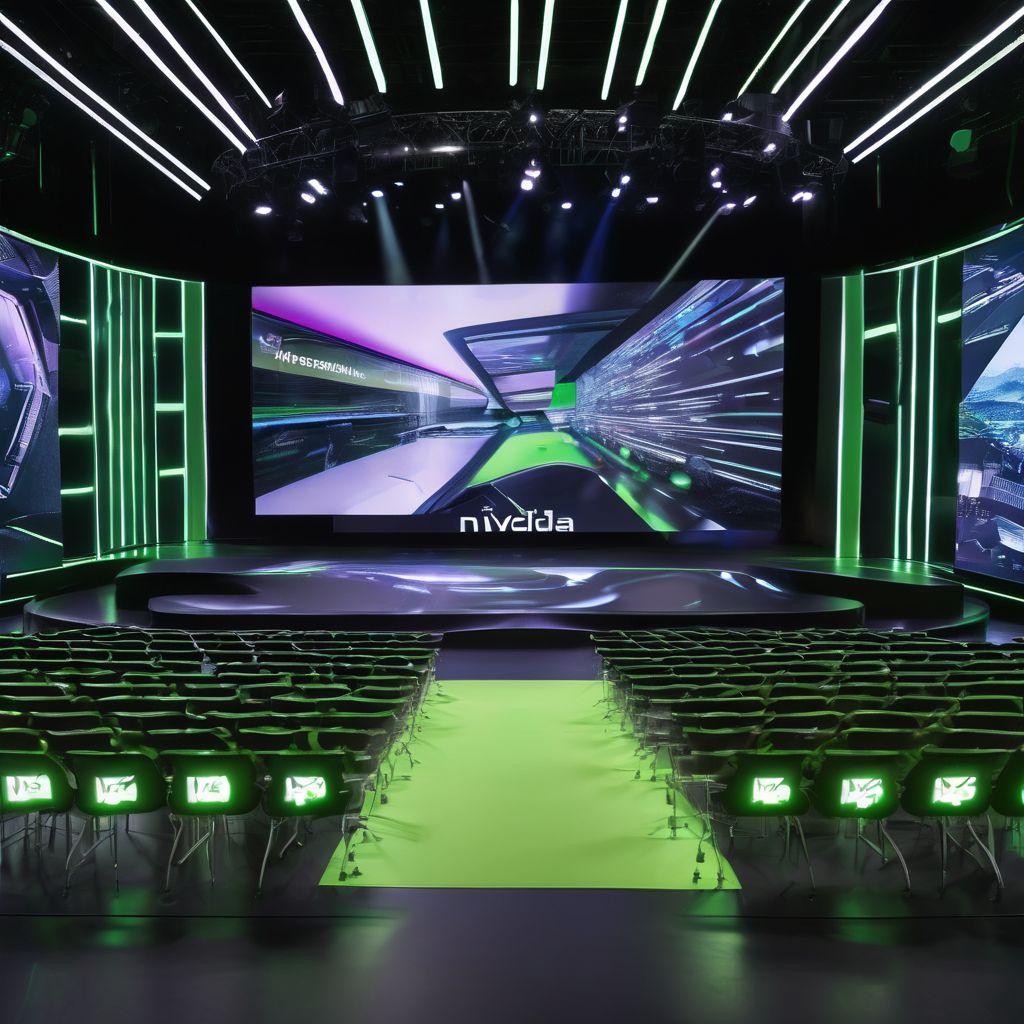
During Nvidia’s GPU Technology Conference (GTC) keynote on October 28, 2025, a disturbing deepfake incident occurred, raising significant concerns about AI misuse and deepfake risks. Nearly 100, 000 viewers were deceived by a livestream featuring an AI-generated version of Nvidia CEO Jensen Huang, a widely recognized tech figure. This fake broadcast, posted on a channel named “Nvidia Live” that appeared official, attracted five times more viewers than the real event’s approximately 20, 000 live audience. The deepfake falsely promoted a cryptocurrency scheme, urging viewers to scan a QR code and send cryptocurrencies, misleading the audience into believing it was part of Nvidia's technological mission. The channel’s official semblance amplified its credibility, exploiting public trust in Nvidia and interest in its technology, especially within the booming cryptocurrency and AI sectors. The AI-generated likeness of Huang was created using extensive publicly available footage from his past presentations, showcasing advances in deepfake technology akin to earlier experiments like OpenAI’s AI-generated Sam Altman demo. As Nvidia nears a $5 trillion valuation, primarily driven by its AI leadership, this event presents critical challenges about securing the authenticity of its digital communications. Expectations are growing from stakeholders and the tech community for Nvidia to address the escalating threat posed by sophisticated deepfakes. Currently, Nvidia utilizes detection tools including its proprietary AI-based system NIM and Hive to combat deepfake content; however, this incident reveals these defenses may be insufficient against increasingly advanced forgeries.
Nvidia is expected to enhance these measures to protect its brand and set industry benchmarks in AI misuse prevention. Beyond Nvidia, this episode highlights broader vulnerabilities in the digital era where distinguishing reality from AI-generated content becomes harder. It underscores the urgent need for advanced detection methods, regulatory frameworks, and heightened vigilance to mitigate risks from AI-driven misinformation. Cybersecurity and AI ethics experts warn of extensive potential damage caused by deepfakes, ranging from financial fraud and misinformation campaigns to eroding public trust and manipulating opinion. The Nvidia deepfake exemplifies how malicious actors leverage cutting-edge AI to deceive vast audiences and manipulate markets. For individuals and organizations, this event stresses the importance of skepticism and verification when encountering digital content, especially in high-stakes contexts such as technological showcases or financial appeals. Practices like confirming sources and questioning unsolicited cryptocurrency solicitations should become routine. Looking forward, Nvidia’s response will likely involve substantial investment in next-generation AI forensic technologies, collaboration with industry and government to establish robust safeguards, and public education on recognizing and combating deepfake threats. These efforts will reinforce Nvidia’s commitment to innovation and protect its community amid emerging AI challenges. In summary, the deepfake livestream during Nvidia’s 2025 GTC keynote marks a critical moment illustrating AI’s dual-use nature: remarkable creative potential paired with ethical and security vulnerabilities. As AI evolves, society must advance its strategies to ensure technology serves constructive purposes rather than deception and harm.
Nvidia Deepfake Incident at 2025 GTC Highlights Growing AI Security Risks


As the holiday shopping season nears, small businesses prepare for a potentially transformative period, guided by key trends from Shopify’s 2025 Global Holiday Retail Report that could shape their year-end sales success.

Meta’s Artificial Intelligence Research Lab has made a notable advancement in fostering transparency and collaboration within AI development by launching an open-source language model.

As artificial intelligence (AI) increasingly integrates into search engine optimization (SEO), it brings significant ethical considerations that must not be overlooked.

British advertising firm WPP announced on Thursday the launch of a new version of its AI-powered marketing platform, WPP Open Pro.

LeapEngine, a progressive digital marketing agency, has significantly upgraded its full-service offerings by integrating a comprehensive suite of advanced artificial intelligence (AI) tools into its platform.

OpenAI’s latest AI video model, Sora 2, has recently faced substantial legal and ethical challenges following its launch.

Around 2019, prior to AI’s rapid rise, C-suite leaders mainly focused on ensuring sales executives kept CRM data updated.
Launch your AI-powered team to automate Marketing, Sales & Growth

and get clients on autopilot — from social media and search engines. No ads needed
Begin getting your first leads today